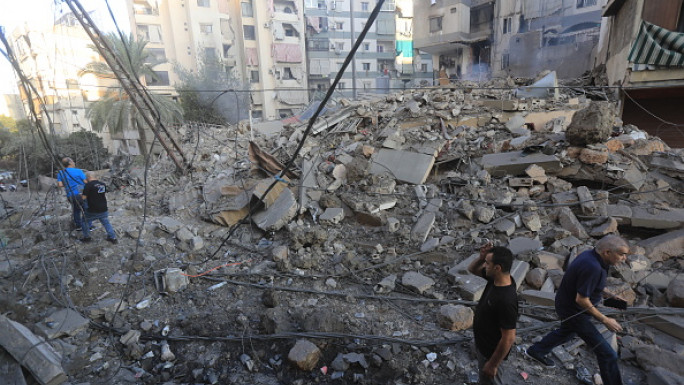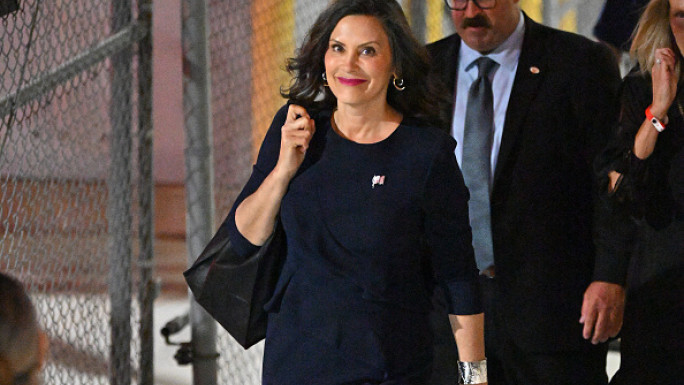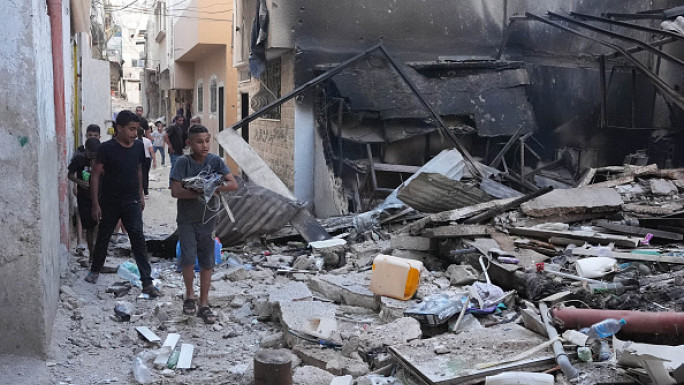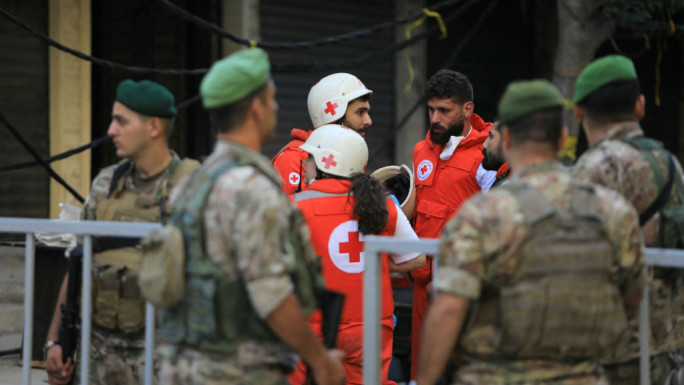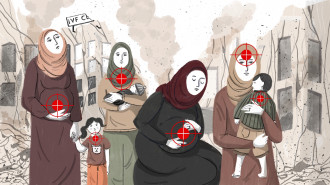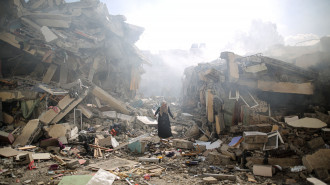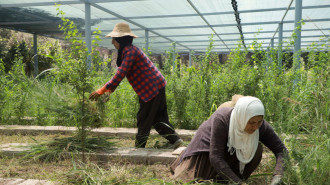
How Palestine became the world's defining cause after 7 October

Nearly 42,000 Palestinians have been killed, half of them women and children, as Gaza marks a year of Israel’s genocidal war.
As Israeli forces continue to sustain their assaults across the Gaza Strip and Lebanon on the anniversary of the 7 October attacks, tens of thousands of protesters marched in cities around the world over the weekend calling for a ceasefire.
Despite global leaders failing the people of Gaza — and now Lebanon as Israel rages its brutal war there — Gaza has remained a defining cause worldwide for the past year.
Everywhere across social media, you will see people raising their voices in solidarity for Palestinians, and calling for an end to the genocide we have been witnessing thanks to the brave journalists in the enclave showing the reality on the ground.
The New Arab takes a look at ways the world showed up for Palestine over the past 12 months:
World citizens rise up
While numerous world leaders have appalled us with their complicity in the genocide in Gaza, world citizens have not.
Since October 2023, hundreds of thousands of people around the world have taken to the streets in protest for an end to the genocide.
Around 500,000 people are thought to have protested in Washington D.C. in November 2023, making it the largest pro-Palestine protest in American history.
In the UK, protesters have marched for an end to the genocide every Saturday without fail, with the biggest protests taking place in London. The biggest protest was on Saturday 21 October 2023, when 100,000 people showed up.
Protests have also occurred in Pakistan, Japan, France, Italy, Brazil and across the MENA region. In August, over 100 protests took place across 58 cities in Morocco in just one day.
And this year was no different.
Ahead of the first anniversary since Israel's genocide in Gaza began, thousands of protesters took to the streets in major cities around the world on Saturday, 5 October, demanding an end to bloodshed in Gaza and Lebanon.
About 40,000 pro-Palestinian demonstrators marched through central London, while thousands gathered in Paris, Rome, Manila, Cape Town and New York City.
Demonstrations were also held near the White House in Washington, protesting against US support for Israel in military campaigns in Gaza and Lebanon.
Politicians on the right side of history
The US and UK governments’ blatant support of Israel’s aggression came as no surprise to anybody, but some world leaders and politicians have been vocal when it comes to Israeli crimes against Palestinians.
Columbian President Gustavo Petro broke diplomatic relations with Israel in May over its actions in Gaza and announced he would open a new embassy in the Palestinian city of Ramallah. Earlier in the year, he called on Columbians to use art to “criticise the genocide against the Palestinian people.”
In the greatest show of solidarity of all, the South African government took the Israeli government to the International Court of Justice, demanding it be held accountable for the crime of genocide.
One of Britain’s most outspoken pro-Palestine politicians has been ex-Labour Party leader and Islington North MP, Jeremy Corbyn, who recently told The New Arab, “Back in October, many of us warned that we were witnessing the beginning of the total annihilation of Gaza. We were ignored – and the Palestinian people paid the price, collectively slaughtered as punishment for a crime they did not commit.”
He also added, “Hundreds of thousands of us continue to march because human beings continue to die... We will continue to demand a total arms embargo, an end to the illegal settlement policy, and the immediate and unconditional recognition of the state of Palestine. There is only one path to a just and lasting peace: an end to the occupation of Palestine.”
University students mobilise
University students in the United States and the United Kingdom set up protest encampments on their campuses in April and May of this year, demanding their universities divest from companies known to fund the Israeli Army.
In America, 121 encampments were set up at 117 universities, including Yale, Columbia and UCLA, and in the UK, students put up protest tents in several universities including Oxford, Cambridge, the University of Manchester and the University of Leeds.
Student protests in the US were met with violence and arrests by the American police and 51% of encampments were forcibly disbanded.
Yale was one of the campuses where police ambushed student encampments.
Chisato Kimura, a Yale student who took part in the encampment, told The New Arab, “The encampments were an important way to show solidarity with Palestinians and to call attention to Yale’s continued complicity in the genocide of Palestinians. At a time when Israel continues to commit horrific atrocities, we have no other option but to continue speaking out and doing everything we can to stop the genocide.”
Chisato added, “They were a powerful reminder of the immense solidarity that students feel with Palestine and a way to visibly show our opposition to the US and US institutions that continue to be complicit in the genocide.”
Student protests spread to other parts of the world, such as Australia, countries in Europe, India and Bangladesh.
Boycotting makes a dent in company profits
Since the second intifada in 2000, people have boycotted brands known to fund the Israeli military on and off. But in the past twelve months, boycotting as a form of protest, resistance and solidarity with Palestinians has truly gone global.
The BDS (Boycott, Divestment and Sanctions) movement calls for a complete boycott of a select number of brands and businesses that have a track record of funding and benefiting from Israel’s violence against Palestinians, such as Coca-Cola, McDonald's, Pepsi and Starbucks, for maximum impact. For many people, it is seen as a tangible way in which they can take action against the atrocities in Palestine.
And the impact has been heavy.
In May, Starbucks lowered its expectations for its full-year sales and profits after a decline in customer sales and traffic in both its first and second financial quarters.
Heavy boycotting of the coffee giant in MENA led to 2,000 job cuts by retail group Al-Shaya (which operates Starbucks in the region) and in August, Starbucks CEO Laxman Narasimhan resigned, amid rumours that it was due to declining sales resulting from the boycott.
Celebrities with a voice
While many celebrities have remained silent over the past year, many others have used their platforms to speak up about what has been happening in Gaza.
Susan Sarandon, Dua Lipa, Mark Ruffalo, models and sisters Gigi and Bella Hadid are just a few. Others have donated money, such as Canadian hip-hop sensation The Weeknd, who donated over $2.5 million to the World Food Programme’s emergency response project in Gaza.
British-Moroccan actress Laila Rouass was one of the first celebrities to use her social media platforms to condemn the genocide in Gaza.
Speaking to The New Arab at the end of last year she said, "You don't have to be a Palestinian. You don't have to be a Muslim. You don't have to be anyone of any religion to see it for what it is. It's a genocide. And how can you not stand up and say this is wrong? It's heartbreaking because Palestinians have been forgotten by world leaders, so we have to be their voice.”
Solidarity and resistance in music, fashion and the arts
There has been an outpouring of resistance, boycotting and solidarity on the music, fashion and arts front.
Authors, actors and performers have used their positions to boycott venues, events and festivals with links to companies that fund Israel.
Hay Festival was forced to drop its main sponsor Baillie Gifford after calls by authors and performers like Charlotte Church and Nish Kumar said they would pull out.
"This is not a game of checks and balances. Your art festival is not more important than the lives of Palestinian children and the future of healthy ecosystems on earth," Charlotte Church said.
"If the art world continues to take this dirty money, we all become complicit.”
Since October 2023, Welsh singer Church has been extremely vocal about Palestine and has organised charity events to raise money for Palestinian children such as The Big Sing for Gaza.
In May, American rapper Macklemore released Hind’s Hall, a track in protest against America’s complicity in Israel’s genocide in Gaza.
The track is named after a university hall at Columbia which students took over and renamed after six-year-old Hind Rajab, who was killed by Israeli forces in Gaza in January.
There have been acts of solidarity on the runway too. During New York Fashion Week last month, Australian fashion designer Lewis Beilharz sent one of his models down the catwalk dressed in a white suit printed with the words “Palestine deserves peace” while waving a Palestinian flag.
This is not the first time Beilharz has incorporated logos such as “Free Palestine” or the keffiyeh into his designs and he has been consistently vocal about Palestine.
[@beilharz_official Instagram]
“I chose to include Free Palestine elements, as I was finding it hard to not speak up,” he tells The New Arab.
“Last February, after being consistently vocal, I wasn’t invited to do any show, so September was my debut show of 2024. As an artist and a creative, I feel a responsibility to be loud and represent those who are unable.
"Sadly, those with bigger and more influential platforms will only speak up when it’s trending. My gesture feels so small in the grand scheme of what needs to be done. I’m grateful that it resonated.”
Businesses and brands become vocal
While some brands are firmly on the boycott list, others have decided to support Palestine.
British cosmetics brand LUSH came up with a special watermelon slice soap, announcing that 100% of profits made from sales of the soap will go to projects providing professional mental healthcare for children in Gaza and the West Bank.
In December 2023, Huda Kattan, founder of Huda Beauty, said she was willing to risk her entire business for Gaza.
"We have to remember that we can't be afraid to lose anything, we have to trust the process and we have to trust that if we lose something, something else will come to us the right way because we are doing good work, we have to believe that, I believe that wholeheartedly," she said in a TikTok following the backlash she received for making her pro-Palestine position clear.
Palestinian-run businesses are resisting Israel and the West’s attempt to silence and erase Palestinians by bringing their culture to the forefront of their trade, such as Bunhead Bakery in South London, which sells buns infused with Palestinian flavours. The buns have become a London-wide hit.
Speaking again to The New Arab, the bakery’s owner Sara Assad-Mannings says, “The last year, whilst deeply painful, has been affirming in the power of sharing our flavours and recipes with people. The love and solidarity from our community have been a great source of warmth through these dark times.
"We want to show people the vastness of Palestinian identity in the diaspora, and always advocate for our brothers and sisters back home. The last year has taught me to never back down and always be proud. Existence is resistance.”
Running, cycling and walking for Gaza
Dozens of people ran for Gaza this year at the London Marathon, including SNP MP David Linden, who partnered with Islamic Relief.
South African runner Mohammed Randeree and his running group also took part in this year’s London Marathon, raising over £17,000 for children in Gaza.
Elsewhere in the world, people cycled for Gaza. In August, Cycling4Gaza cycled 300km over four days between Ghent in Belgium and the Hague in the Netherlands and raised over £670,000 for children’s mental welfare in Gaza.
For those who could not run or cycle, they walked, raising money for grassroots initiatives, charities and families in Gaza via sponsored walks.
People across Britain took part in the Gaza Winter Walk in December 2023 and January 2024 in Manchester, Birmingham and London, raising over £250,000 for Muslim Hands for emergency food, water and medical supplies for displaced Palestinians in Gaza.
Cover illustration by Dania K. Follow her work on Instagram: @cestdania
Yousra Samir Imran is a British Egyptian writer and author based in Yorkshire. She is the author of Hijab and Red Lipstick, published by Hashtag Press
Follow her on X: @UNDERYOURABAYA

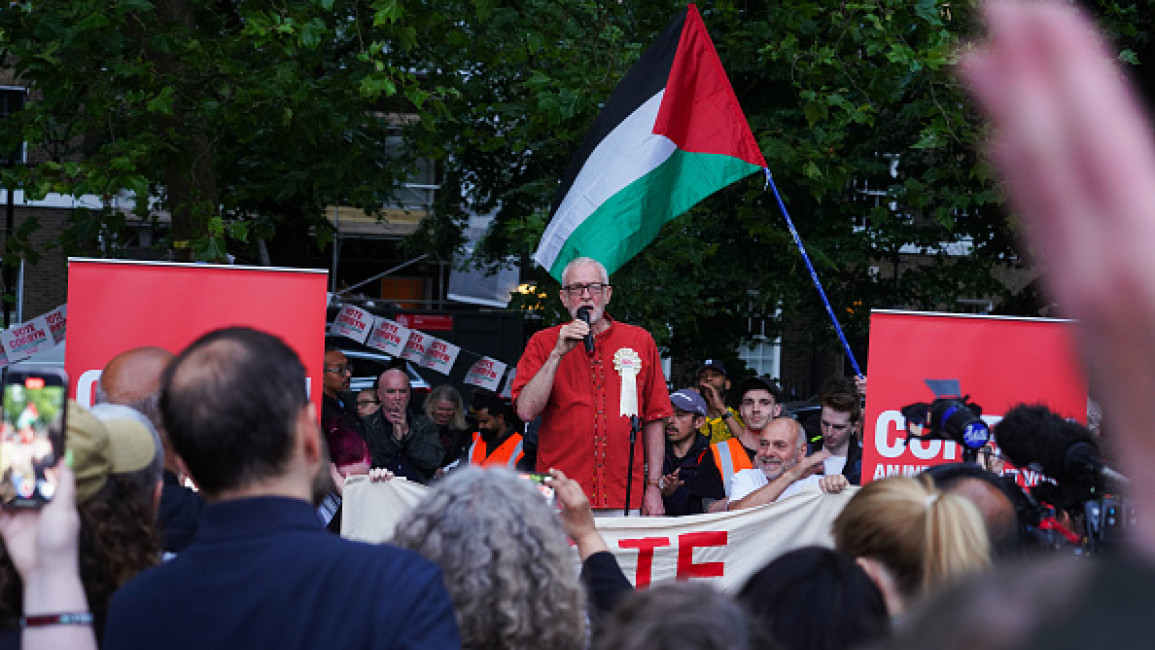




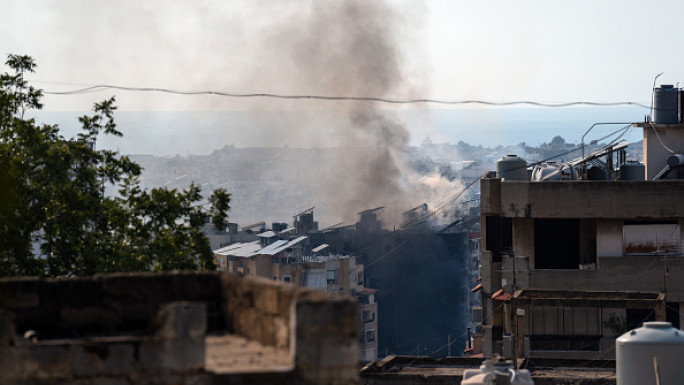
![Minnesota Tim Walz is working to court Muslim voters. [Getty]](/sites/default/files/styles/image_684x385/public/2169747529.jpeg?h=a5f2f23a&itok=b63Wif2V)
